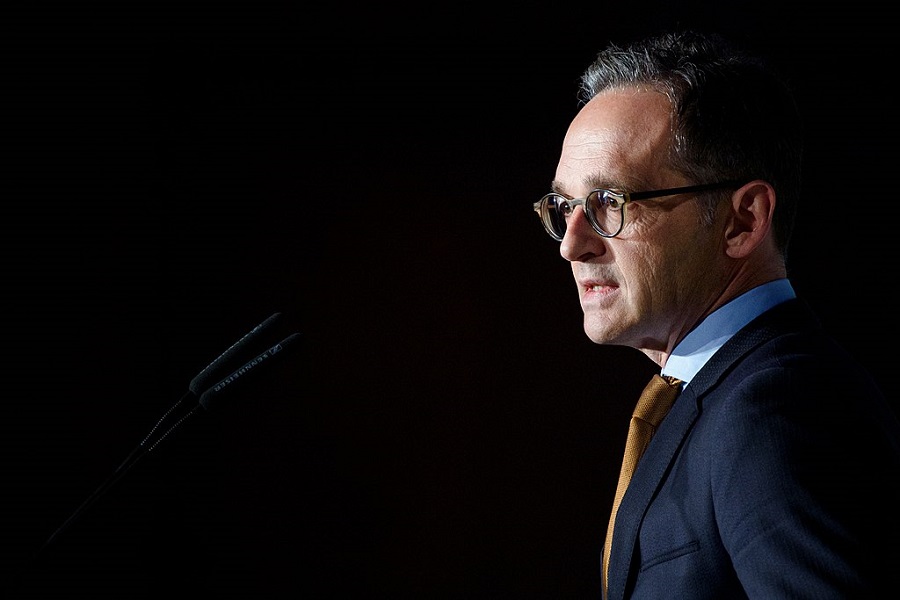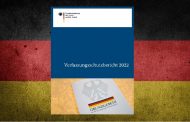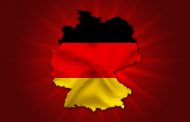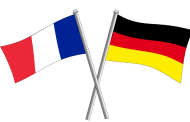Minister zahraničných vecí NSR H. Maas sa počas svojej pracovnej návštevy Nórska zúčastnil na prezentácii nórskej bielej knihy o multilateralizme, ktorú predstavila ministerka zahraničných vecí Nórska Ine Eriksen Søreideová. V rámci tejto udalosti H. Maas predniesol príhovor, ktorý publikujeme v plnom znení.
* * *
Speech by Foreign Minister Heiko Maas on the occasion of the presentation of the White Paper on Multilateralism
_____________________________________________________________________________________________________________________________________
Thank you for inviting me to speak to you today.
Let me say, sometimes you can tell immediately when you have come to the right place. Today, it took me only five minutes. During my short trip down the highway, between the airport and Oslo, I spotted more German electric cars than over the past five months in Berlin.
And while Ambassador Grannas and I were talking about e-mobility in Norway, I learned a new word. It’s Rekkeviddeangst.
I hope I pronounced it right. The word describes the fear that you won’t reach your destination. That you don’t have the range to make it.
In a way, this is what brings us together today. We are afraid that our range in this world is getting smaller and smaller.
Your white paper on multilateral cooperation highlights the challenges:
- The return of great power competition.
- The rise of nationalism and populism.
- The weakness of the international system for addressing new global challenges.
- In essence: The erosion of international order.
Something we are currently witnessing in the Gulf. We strongly condemn the attacks against two tanker ships that happened yesterday. They are a threat not only to free trade. In the current situation they are a threat to peace.
Ladies and Gentlemen,
In a world where might is right, Norway and Germany can only lose.
Are we the subject, or rather the object, of global policy? That has become the key question for us Europeans.
For me, the answer to that question is clear. It is the same answer that you give in your white paper. Our primary interest must be to prevent the erosion of international law. To strengthen multilateral cooperation.
They are the bedrock of our prosperity, our international influence – and, ultimately, our way of life.
So, my first message today is: Multilateralism matters! It is the best way to address rekkeviddeangst.
That is why, last year, we proposed building an alliance for multilateralism.
A network of countries
- that share a common set of rules and values.
- that are committed to international order.
- that aim to address new challenges together.
And I was glad that you supported this idea when you visited us in Berlin last September.
We agreed on a threefold approach:
First, we want to defend international rules and institutions that are coming under attack at the moment. The nuclear deal with Iran and the Paris climate agreement are some examples. Next, we have our human rights architecture, the humanitarian system and the crumbling agreements on arms control. Michelle Bachelet, the High Commissioner for Human Rights, recently summed it up well when she said: “We need to push back the push-back.”
Secondly, we must strengthen international cooperation where new challenges demand new answers. Climate change, migration and cyber threats don’t stop at national borders. So we need to address them jointly.
And, thirdly, we want to reform international institutions like the United Nations or the WTO. They must reflect the world and the priorities of our century. This is not just a matter of fairness. It is a matter of credibility.
Preserving the international order requires us to be progressive. Because – as the saying goes – “only a rolling stone gathers no moss”.
Ladies and Gentlemen,
We know that all of this is easier said than done.
Our success depends on partnerships. Partnerships like the one we have built between Norway and Germany.
When the humanitarian system nearly crumbled under the impact of the Syria crisis, our two countries gathered all donors in London. And we led by example.
When the countries of the Lake Chad region were about to slide into conflict last year, we raised global awareness and helped stabilize them.
In light of the climate crisis, we forged a group of nearly fifty like‑minded countries in New York. Together, we will make sure that climate change stays at the top of the United Nations agenda.
Ladies and Gentlemen,
These examples show: multilateralism is not a lofty globalist ideology. It works for the people.
That idea lies at the heart of your white paper. And no country embodies it more than Norway.
Norway’s wealth is a product of your openness and your ability to compromise. And compromise is not a dirty word. Compromise that is always grounded in firm values. When others fall silent, it is often Norway that speaks up for human rights, gender equality and humanitarian principles.
This is what lends you credibility – the most important currency in international affairs. It is also what makes you a successful mediator – whether in Colombia, the Philippines, or currently in Venezuela.
Your secret is that you have never mistaken mediation for neutrality. You are partisan. Partisan in favour of human rights, of democracy and of international law.
My second message today is: We need more Norway in this world. You are a true champion of multilateralism. A role model for many other countries.
So, when our membership on the Security Council ends in 2020, we would gladly hand our seat over to you.
Because we share the same agenda:
- Crisis prevention and stabilization,
- Arms control and nuclear disarmament,
- Climate change and its effects on global security,
- The fight against impunity,
- The respect for humanitarian law,
- And, last but not least, the protection of women and children in armed conflict.
Here, at the Nobel Peace Center, a few metres away from the place where Nadia Murad and Denis Mukwege received the Nobel Peace Prize last year, I want to renew our commitment to their cause.
Ladies and Gentlemen,
There is one more point I would like to make.
In the strategy on Germany that you are presenting today, you call us your “most important partner in Europe”.
This is humbling. Thank you very much.
And it reminds me of an article that I read in Politico last year on your European Strategy. They called it “Norway’s love letter to the EU”. Now, we want to have a love letter from you, too. And perhaps, your white paper could be the first chapter.
So, and that’s my third message to you: the Germans like you, too. In fact, when we are looking for inspiration, we often look north. To Norway. That’s the truth.
Norway’s participation as the partner country of the world’s biggest book fair in Frankfurt this year offers a chance to do just that.
To take a closer look at your country – beyond the images of fjords and Hurtigruten ships. It is a chance for us to see the world through Norwegian eyes. To soak up Norwegian ideas.
And that is also why I came here today.
We want to listen to you. We want to invest in our relationship. Because we know that having no problems can sometimes become a problem.
Ladies and Gentlemen,
In a world in constant crisis mode, knowing your friends is everything. And having a friend like Norway is the best remedy against rekkeviddeangst.
Because, Ladies and Gentlemen, from time to time, we Germans need someone to tell us “Det ordner seg!”
Thank you for being that someone!
* * * * *
Zdroj: https://www.auswaertiges-amt.de/en/newsroom/news/maas-white-paper-mutilateralism-norway/2226866
Ilustračné foto: https://commons.wikimedia.org/wiki/File:Future_Affairs_Berlin_2019_-_%E2%80%9EDigital_Revolution_Resetting_Global_Power_Politics%3F%E2%80%9C_(47959192197).jpg







